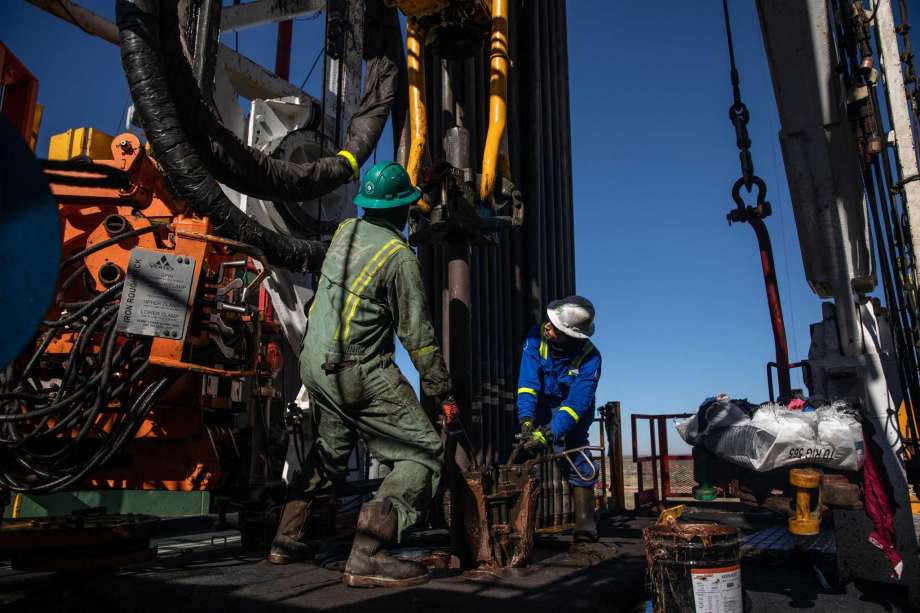Platts
A sudden wave of consolidation in the Permian Basin after many months of deal-making silence is expected to continue in spurts in a trend that should expand to other regions such as the Bakken Shale and DJ Basin, energy analysts said.
In a series of all-stock deals, ConocoPhillips scooped up Permian pure play Concho Resources for $9.7 billion on Oct. 19 and, one day later, Midland Basin leader Pioneer Natural Resources snagged Parsley Energy for $4.5 billion in a more familial deal. Already, Chevron closed on its $5 billion acquisition of Noble Energy early in October and, last month, Devon Energy agreed to buy WPX Energy for $2.56 billion in a so-called merger of equals.
“There seemed to be a collective ambition from all these companies to do something, and do it quickly,” said Scott Hanold of RBC Capital Markets. “It’s like someone just turned on a light switch.”

Source: Houston Chronicle
There’s simply too little investor interest in oil producers, and being a mid-sized player in a cyclical industry with weak crude prices just isn’t cutting it anymore, Hanold and other analysts said. The industry only accounts for a record-low of 2% of the S&P 500 and the outlook doesn’t appear any stronger going forward with more even environmental and regulatory hurdles likely ahead, as well as a pandemic that seems to surging yet again.
The Permian remains by far the best-performing basin so it’s leading the way in deals, he said, which should soon extend to the other shale basins.
With front-month NYMEX WTI settled near $40/b for much of the summer, there was finally enough stability for coronavirus-era deals to get done.
“I think we’re seeing this wave of consolidation because interest in energy investing is just beyond anemic,” said equity research analyst Leo Mariani of KeyBanc Capital Markets. “Investors just don’t seem to care about energy.”
The energy sector has been burdened with too many players for many years, but executives had resisted consolidation until now, said Pavel Molchanov, an energy analyst at Raymond James.
“The level of stress in the industry is such that companies see strength in numbers – even if the selling price is not at the level that sellers would have historically been willing to accept,” Molchanov said.
Better bargains
The premiums on the recent deals have ranged from 3% to 15%, way down from recent trends of paying nearly 40% premiums in past years. Most notably, Occidental Petroleum outbid Chevron last year, paying $38 billion to buy Anadarko Petroleum at a 57% premium. Now, Oxy has a market capitalization value of just $9.1 billion.
Likewise, at just the beginning of this year, Concho had a market cap of $17 billion and Parsley was valued at almost $8 billion.
More than 40 US oil and gas producers have filed for bankruptcy this year, according to a tracker from the law firm Haynes and Boone. That’s on track to be the most filings since 2016, but the aggregate debt from those companies in 2020, led by shale trailblazer Chesapeake Energy, should surpass the 2016 amounts by the end of the fourth quarter.
Analyst Paul Sankey of Sankey Research called the Pioneer-Parsley deal more of a “take-under” because of the roughly 8% premium that he’d predicted could be as high as 20%.
“Everyone can see the advantage of the deal for Pioneer, the advantage for Parsley is less obvious,” Sankey wrote in a note. “But then, overall, everyone can see the benefits and, in fact, desperate need for consolidation, so major shareholders are in the ‘shrug and move on’ mode.”
The extra scale and more contiguous drilling acreage is projected to lead to more drilling and capacity efficiency, and better free cash flow.
Notably, Pioneer CEO Scott Sheffield is the father of Parsley founder and chairman Bryan Sheffield, but the family duo said they recused themselves from negotiations. Pioneer was actually formed in 1997 Parker & Parsley merged with MESA Inc. Scott Sheffield is the son-in-law of co-founder Joe Parsley, who died in 2015.
Scott Sheffield said they felt the need to scale up and combine with Parsley because only a few large, independent oil producers will survive as investment-worthy options with market caps above $10 billion. He named four: Pioneer, ConocoPhillips, EOG Resources and “maybe” Hess Corp., which operates in the Bakken but not the Permian. He left out Oxy and others.
What comes next
The recent deals would leave the top Permian producers as Oxy, Pioneer, ConocoPhillips, EOG, ExxonMobil, Chevron, Devon and Permian pure play Diamondback Energy, as well as a couple of strong privately held producers Mewbourne Oil and Endeavour Energy, the latter of which resisted pre-pandemic bids from Shell and others.
Out of the companies that haven’t made new moves, EOG is in the best position to buy, analysts said, as well as the integrated European majors Shell, BP and Total if they want stronger shale positions. Permian-focused Cimarex Energy looks like the best jewel left on the market, analysts said, while Total could always make a move to buy Apache Corp. Total and Apache already have partnerships outside of the US.
Other mid-sized players such as Diamondback, Marathon Oil and Continental Resources may need to decide whether they want to buy or sell. Hanold suggested Marathon and Continental could pair up. But there’s always the issue of egos, and one of the two CEOs needing to step aside. That’s easier said than done, Hanold said.
Recent bankruptcies from Bakken players such as Whiting Petroleum and Oasis Petroleum could help trigger deals there, Hanold said, and other basins should consolidate as well.
But this isn’t just about going from a market cap of $4 billion to $8 billion, Hanold said. Companies may need to develop much more scale to garner legitimate interest from investors long term.
“You need to go from $4 billion to $40 billion. I’m only being a little bit facetious,” he said.

